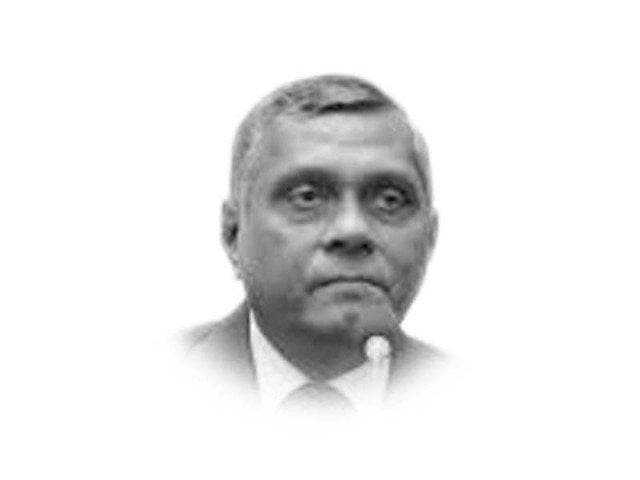
Three years after the absorption of Jammu & Kashmir into the Indian Union, situation on the ground in that beleaguered region is as volatile and dangerous as it was in August 2019. In a report recently released by Amnesty International entitled, “We are being punished by the law: Three years after since abrogation of Article 370 in Jammu & Kashmir” stated, “The Indian government’s efforts to put in place unlawful surveillance measures, arbitrary detention, and restrictions to freedom of expression and simultaneously conceal its actions in occupied Jammu & Kashmir clearly violated international human rights law.”
From all accounts, IIOJK (Illegally Indian Occupied Jammu & Kashmir) is New Delhi’s bleeding wound because of its repressive policies to brutally suppress expressions of popular Kashmiri resentment. Yet, New Delhi is unable to control the situation despite deploying more than 600,000 of its military forces particularly in the Valley of Kashmir. There is overseas travel ban on non-conformist lawyers, academics, journalists, political figures and human rights activists. Domicile act and redrawing of electoral constituencies are crude attempts by the Modi regime to change demographic complexion of Muslim majority Valley of Kashmir so that a non-Muslim Chief Minister can be elected. There is no letup in siege and search operations, extrajudicial killings and press censorship — something that reflects brutal Indian acts to suppress popular movement against the illegal occupation of New Delhi on J&K.
Indian atrocities in IIOJK were further exposed by Amnesty International in its report: “For three years now, civil society, the media in Jammu and Kashmir have been subjected to a serious crackdown by the Indian government, which is determined to stifle dissent using draconian laws, policies and unlawful practices in their arsenal.” Yet, the Modi regime disregards criticism against its inhuman and unjust policies in IIOJK which got an impetus after passing Jammu & Kashmir Reorganization Act of August 5, 2019 by the Indian parliament. Acts of serious human rights violations against Kashmiri Muslims including rapes, harassment and intimidation are fully documented, but neither the so-called secular and democratic political parties of India nor the civil society tried to effectively challenge the fascist policies of the BJP regime.
The Amnesty International report also mentioned bitter facts: “By harassing and intimidating critical voices, authorities are targeting all credible, independent sources of information in and about Jammu and Kashmir. There is a silence achieved on all dissent through heavy handed repression which has spread fear and uncertainty in the region. The passing of repressive policies such as the 2020 Revised Media Policy and 2021 Film Policy have been used as attempts to legitimize the censorship of expression and ensured a total control of information coming out of the region by the Indian government.” Furthermore, other brutal and repressive measures by the Hindu nationalist BJP Modi regime led to the firing of many journalists and the closure of Kashmir Press Club in 2022. The BJP government through its bunch of lies justifies harsh measures in IIOJK by arguing that these are essential in order to combat terrorism. Equating freedom struggle with terrorism is a joke which successive Indian regimes have been making in order to placate serious violation of human rights particularly since August 5, 2019.
Why is India bleeding in IIOJK and to what extent will its soft underbelly unleash the process of its eventual disintegration? India’s drive to achieve a superpower status in the Asia-Pacific regime is a non-starter because its internal fault lines are deepening with each passing day particularly in terms of surge in Hindu nationalism. During his speech on the occasion of India’s Independence Day on August 15 this year, Prime Minister Narenda Modi narrated his wishful thinking that in coming 25 years his country will be a part of the developed world. But, such type of an assumption cannot be transformed into a reality until India is at peace with its neighbours; ends its military occupation of IIOJK; and curbs the tide of Hindu fascism particularly against religious minorities. Submerged under the ocean of poverty and backwardness, India will resemble an insecure state trying to bully its neighbours by augmenting its military power costing its economy and foreign policy.
From any standpoint, India’s bleeding wound in IIOJK will be a major cause of its decline and fragmentation because of two main reasons.
First is the denial mode in India today, particularly its so-called patriotic and Hindu nationalist elements that there is normalcy in the occupied region and some ‘miscreants’ termed as Jihadi elements are a source of trouble. Otherwise, the vast majority of the people of its occupied parts of Kashmir, including the Muslim majority population of the Valley, have accepted the revocation of Article 370 and 35-A and want to live peacefully within the fold of Indian union. As a result, denying ground realities tends to further compound Indian quagmire in IIOJK and will continue to drain its resources. Prime Minister Modi frequently mentions 1,000 years of slavery of Hindus first at the hands of Muslims for 800 years and then by the British for 200 years. But he has forgotten the fact that 75 years of independence of Hindus in India tends to augment a sense of arrogance, superiority and false pride particularly directed against Muslims and Pakistan. Avenging the so-called slavery at the hands of Muslims is a dream of Hindu communalists and nationalists which they want to proceed by unleashing a policy of ethnic cleansing in IIOJK, targeting Indian Muslims as well as Pakistan. Such type of a mindset will cost India is very existence.
Second, Pakistan is unable to fulfil its pledge to effectively help the Kashmiri people enslaved by the Modi regime. By leaving Muslim Kashmiris of the Valley at the mercy of Indian military, the outcome is BJP’s growing confidence that it can accomplish the age-old dream of taking the Muslim dominated valley of Kashmir under the full control. Unless Pakistan is economically powerful; politically stable with good governance and rule of law; and is able to protect its sovereignty; it cannot play any viable role to emancipate of people of occupied Kashmir from the clutches of Indian occupation. Adhering to political and diplomatic support to Kashmiris is one thing but to render practical support to them is perceived as a risky task. The more Pakistan sinks in the web of economic and political crises, the more it will let down Kashmiris, thus augmenting the level of Indian confidence.
IIOJK is a test case for Pakistan inasmuch it is a test case for India. Saner elements in India who are against Hindu nationalism, communalism and brutalities against Kashmiri people must rise and stop Hindu fascist Modi regime from further damaging the image of India. The road to India’s destruction passes through Srinagar.
Published in The Express Tribune, September 11th, 2022.
Like Opinion & Editorial on Facebook, follow @ETOpEd on Twitter to receive all updates on all our daily pieces.




1731916090-0/sabrina-(3)1731916090-0-165x106.webp)



1729685382-0/Untitled-design-(57)1729685382-0-270x192.webp)




COMMENTS (22)
Comments are moderated and generally will be posted if they are on-topic and not abusive.
For more information, please see our Comments FAQ